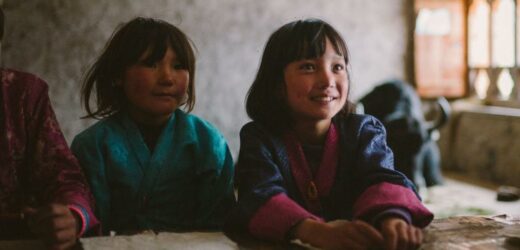Bhutan’s first Oscar entry in 23 years, Pawo Choyning Dorji’s feature debut “Lunana: A Yak in the Classroom” had an unusual journey before landing on the shortlist for Oscar international film.
The lushly lensed feature, with a plot revolving around the spiritual coming of age of a young man on a quest to find happiness far from home, was made on solar batteries and shot for three months in one of world’s most isolated human settlements with first-time actors and an amateur crew.
“It’s a very surreal journey, and for me it really validates the power of art and filmmaking, that if you put your heart into it, and share a story with the world, it can go from the remotest school in the world, all the way to the most prestigious stages of the world,” says Dorji. He is an author and photographer from Bhutan whose work has been published in magazines such as Life, Esquire and the Wall Street Journal.
Dorji was mentored by Bhutanese director Khyentse Norbu, who is also his spiritual Buddhist teacher. Norbu’s 1999 directorial debut, “The Cup,” was the first Bhutanese film to have been submitted to the Oscars.
“Lunana” follows a young teacher from Bhutan’s capital who dreams of immigrating to Australia to become a professional singer, but instead finds himself assigned to a school in the most remote village in northern Bhutan. Although he wants to leave immediately, the young man eventually finds true happiness and bonds with local children, who persuade him to stay.
Represented by Berlin-based Films Boutique, “Lunana: A Yak in the Classroom” premiered at the BFI London Film Festival in 2019 and won the audience award at last year’s Palm Springs Film Festival. Samuel Goldwyn Films has North American rights.
The movie was submitted last year by the Bhutanese government’s Ministry of Information and Communications but the entry was considered ineligible because Bhutan sent the film before getting its selection committee officially approved by the Academy, which requires committees to have submitted at least one film in the past five years.
A new selection board, including Norbu, was formed within the last year and unanimously chose “Lunana: A Yak in the Classroom.”
Dorji says that every aspect of the film was inspired by true accounts he collected through his trekking trips through yak herding villages where he “personally experienced the tough but beautiful and fulfilling lives these people were living.”
Dorji had the idea of setting the film in Lunana — an area so remote that its name translates into “dark valley” — to “capture the genuineness of a people who were untouched by the world” and see “if we could actually discover in the shadows and darkness, what we are so desperately seeking in the lights of modernization,” he says.
“Bhutan is known as being the happiest country in the world, yet there are thousands of Bhutanese youth who are migrating to Australia and the Americas every year,” says the helmer, who previously worked as an assistant on Norbu’s “Vara: A Blessing” in 2012 and as a producer on “Hema Hema: Sing Me a Song While I Wait” in 2016.
The “Lunana” cast is made up of people whose real lives mirror their on-screen characters — for instance, Sherab Dorji, who plays Ugyen, dropped out of school to pursue a career in music, while Pem Zam, the little girl who doesn’t have a mother and is being raised by her grandmother, just like her character in the film. As with other villagers who appear in the film, Zam never traveled outside Lunana.
Filming was epic and challenging but spiritually fulfilling, explains the filmmaker.
“We spent a year in production where we had to work with an army of mules and donkeys to carry up everything we need to make this film, from solar panels, batteries, resources to build our own temporary housing, rations to last the whole production,” says Dorji, who produced the film with Steven Xiang, Stephane Lai and Jia Honglin.
“We literally came back looking like yaks! But we all shared this amazing experience and I think it translated onto the film.”
Source: Read Full Article


